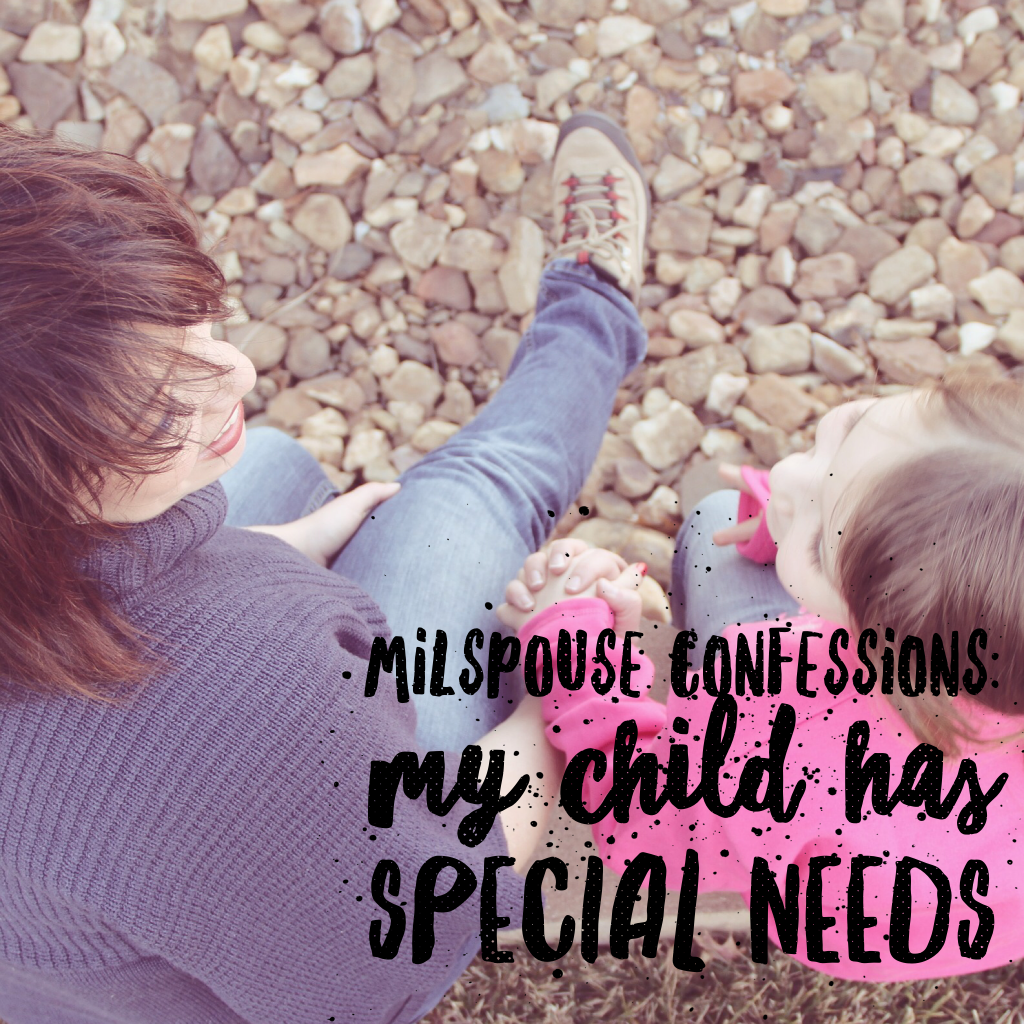After nine long months you finally meet your baby and are overwhelmed with love that only a parent can understand. The last thing you want to hear is that something is “different” about your child.
I spoke with an Army wife who shared her family’s ongoing journey to meet the needs of her son. For privacy, names have been changed. I thank her for sharing her story with me in hopes that others can relate, find strength and benefit from helpful resources.

Welcome to the World
The day Cole arrived was one of the most emotional days of Alana’s life. After a healthy pregnancy and a challenging delivery, she was finally a mom. She soon learned that Cole had a congenital heart defect and needed to undergo tests. Alana tried to stay strong and focus on what the doctors were saying, but broke down in the recovery room as soon as they left. She explains, “I did everything right during my pregnancy — how could this have happened?”
Thrown Into the Deep End
Cole’s entrance was only the beginning. Alana shares that he developed unusual behaviors like headbanging and prolonged screaming fits. Being their first baby, they had no basis of comparison, but were concerned. They asked family, friends and doctors, but were assured that his behaviors were normal.
Cole developed advanced verbal skills early on. “Although he possessed a vocabulary, he’d retreat to blood-curdling screaming fits numerous times a day,” recalls Alana. Sometimes they were triggered by hand dryers in public restrooms or getting a little water on his face during bath time, others happened for no apparent reason. “Cole’s emotional outbursts were out of control and took a toll on our family,” shares Alana.
An Honest Conversation
Alana describes that her life became a cycle of angry mornings, exhausted afternoons and tearful nights. She felt frustrated, helpless, guilty, resentful and alone. “I always wanted to be a mom, but never imagined it would look or feel like this,” she confesses. She was embarrassed by judging looks from strangers, unsolicited advice from others, and was envious of parents who had neuro-typical children.
When Cole was 3.5, Alana and her husband admitted to each other that something “felt” different about their son. “Wishing it away, reading parenting books, or changing our techniques alone would no longer cut it — we needed professional assistance,” says Alana. The following day she researched military resources and started making calls.
The couple went into it optimistically. “We wanted a fast diagnosis and immediate treatment, but unfortunately it wasn’t that easy,” recalls Alana. The process was long, complex and involved phone calls, referrals, appointments, paperwork and lots of waiting.
Finding Answers
“We now know that Cole is highly sensitive, has sensory processing disorder, low-muscle tone, and suffers from anxiety,” shares Alana. “I can say that now in one sentence, but this took months to uncover. We suspect a couple other issues, and are working to best identify and support his needs.”
Cole is now 5 and has benefited from a variety of military programs, specialists covered through Tricare, and experts at his school. “We have worked with New Parent Support, a child psychologist, child psychiatrist, occupational therapist, guidance counselor, special education teacher and behavioral therapist,” shares Alana. She has learned new tricks and tweaks to better reach and understand Cole, and make home life more enjoyable.
Loving the Child I Have
“We have come to understand that there is no ‘fix,’ and that he will always have challenges. He is a wonderful and exceptional child, and we don’t identify him by his weaknesses, but instead by his talents and strengths,” explains Alana.
She bravely shares, “I have stopped grieving for the child I don’t have and accept and love the one in front of me. It is my mission to support and guide him, provide a loving home, a happy childhood, and set him up for a successful life.”
Helpful Military Resources
Parenting doesn’t come with a manual. As much as you may not want to hear something is different about your child, or you don’t want to “label” your child with a diagnosis, early detection and support is paramount. If you suspect anything, here are available resources:
-
EFMP – The Exceptional Family Member Program addresses special needs to include physical, intellectual, developmental delays and emotional impairments that require special treatment, therapy, education, training or counseling.
-
EDIS – Educational and Developmental Intervention Services are available for children from birth to three years of age.
-
New Parent Support – Army Community Service (ACS) offers New Parent Support, complete with home visits, respite care and more.
-
Child Find – Child Find can evaluate and identify any special needs your child may have, and he/she may qualify for special education preschool.
-
Tricare Medical Referrals – If your child has aged out of certain services, or you find that you need additional help, see your pediatrician for Tricare medical referrals to specialists.
-
School Services – If your child is of school age, reach out to his or her teacher to develop an Individual Education Plan (IEP).
-
MFLC – Talk therapy can provide you and your spouse with much-needed relief through the Military Family and Life Counseling program.
-
Like-minded parents – Seek out online parenting support groups, others with children of similar needs, and those who parent like you.
Alana’s Advice
“I recommend that you go with your gut, seek help early, don’t give up hope, and go easy on yourself. I tried to be super mom and was heartbroken when I couldn’t accomplish this on my own. Now I know that there are others — professionals, family, educators and friends — who are there to help. Also, don’t forget yourself in the process. Take breaks, talk to someone and know that you are doing the best you can.”
 A self-described “Jackie of All Trades,” Army wife Jackie Toops is a mother of two and enjoys writing, travel, art, languages, slow cooking and peaceful parenting. She studied Interdisciplinary Humanities, Museum Studies and Nonprofit Management, and has overseen public relations for museums, galleries and universities. She is a contributing author for Wall Street International Magazine and has discussed her articles on-air with AFN Wiesbaden. She’s usually seen adventuring with her Canon, a coffee and two small children. Follow her on Twitter.
A self-described “Jackie of All Trades,” Army wife Jackie Toops is a mother of two and enjoys writing, travel, art, languages, slow cooking and peaceful parenting. She studied Interdisciplinary Humanities, Museum Studies and Nonprofit Management, and has overseen public relations for museums, galleries and universities. She is a contributing author for Wall Street International Magazine and has discussed her articles on-air with AFN Wiesbaden. She’s usually seen adventuring with her Canon, a coffee and two small children. Follow her on Twitter.Comments
Powered by Facebook Comments




I understand all too well, how it feels when your child is going through something that doctors can’t figure out or can help. Both by daughter’s have been slowly losing their hearing and have trouble at school. I love them so much and am inspired by how strong they are. This was a great read and I can really relate on so many levels. Thank you Jackie.